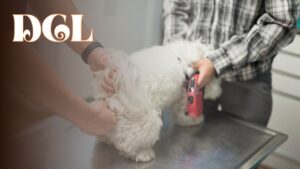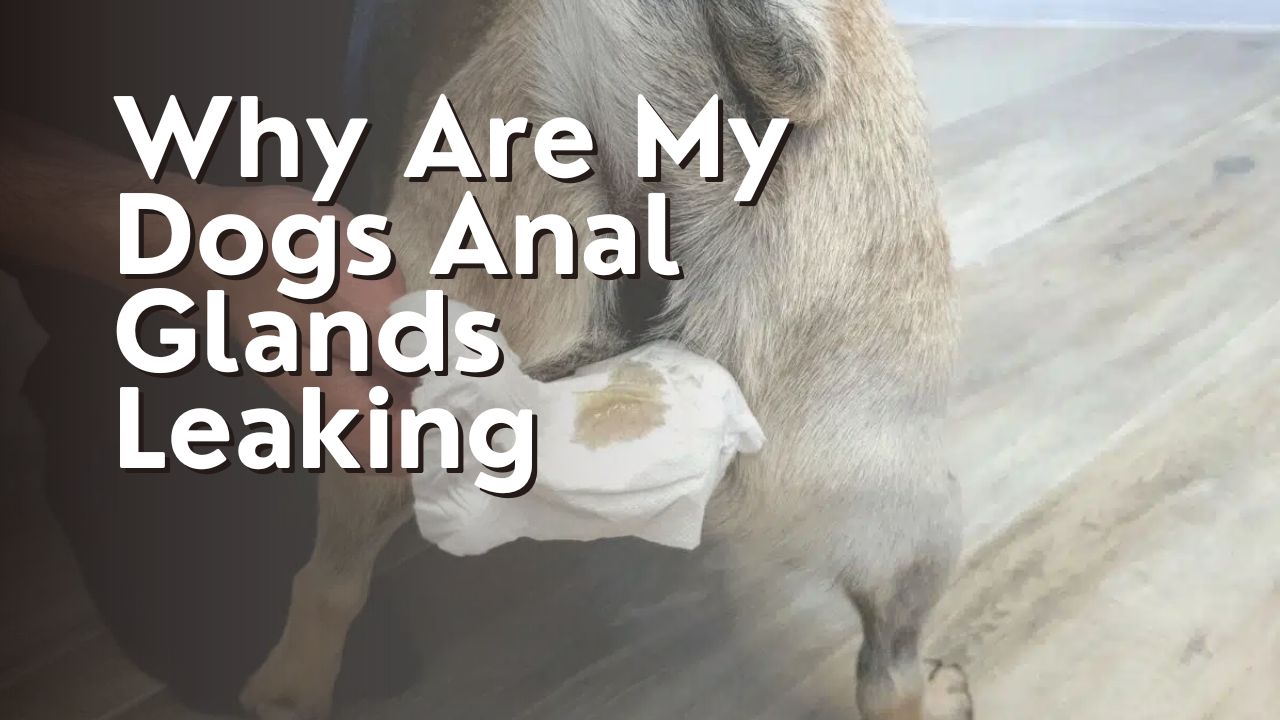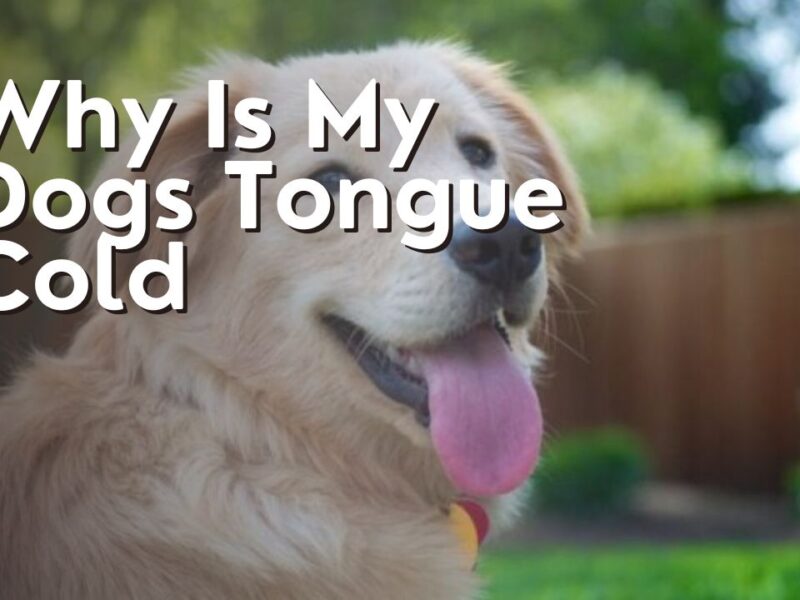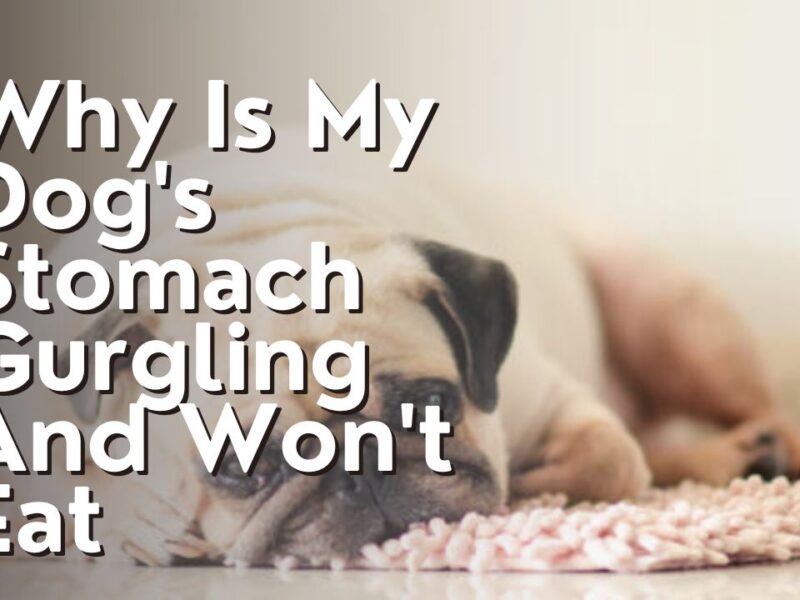Hey there! Have you ever wondered why your furry friend’s anal glands seem to be leaking? Well, you’re not alone. As a dog owner myself, I understand the concern that comes with this issue.
In this article, we’ll delve into the function of anal glands in dogs, common causes of leakage, signs to watch out for, treatment options, and ways to prevent anal gland problems altogether.
So let’s get to the bottom of this (pun intended) and find out why your dog’s anal glands may be causing some unwanted leakage.
Understand the Function of Anal Glands in Dogs
Do you know why your dog’s anal glands are leaking? It can be quite a concerning and unpleasant issue for both you and your furry friend.
To understand why this happens, let’s explore the function of anal glands in dogs.
Anal glands, also known as anal sacs, are small sacs located on either side of your dog’s anus. They contain a foul-smelling fluid that is released when your dog defecates or experiences a certain level of stress or excitement. This fluid serves as a form of communication, allowing dogs to mark their territory and identify each other.
Leaking anal glands can occur due to various reasons. One common cause is inadequate emptying of the glands during bowel movements. If the stool is too soft or your dog’s anal muscles are weak, the glands may not be fully expressed, leading to leakage. Additionally, certain medical conditions such as allergies, infections, or tumors can also cause the anal glands to become inflamed and leak.
If you notice your dog’s anal glands leaking, it is important to consult with your veterinarian. They can help determine the underlying cause and provide appropriate treatment. In some cases, your veterinarian may recommend manually expressing the glands or prescribe medication to alleviate inflammation and prevent future leakage.
Remember, understanding the function of anal glands in dogs is crucial in addressing any leakage issues. By taking proactive measures and seeking veterinary guidance, you can help keep your furry friend comfortable and happy.

Common Causes of Anal Gland Leakage
I want to discuss the common causes of anal gland leakage in dogs.
First, impacted anal glands can be a major culprit. When the glands become blocked, they can leak and cause discomfort for our furry friends.
Second, infection or inflammation in the anal glands can also lead to leakage. It’s important to keep an eye out for any signs of redness or swelling in that area.
Lastly, allergies or food sensitivities can irritate the anal glands and result in leakage. It’s crucial to identify any potential triggers and make necessary dietary adjustments for our dogs’ well-being.
Impacted Anal Glands
Impacted anal glands can cause dogs’ anal glands to leak. When the anal glands become impacted, it means that the fluid inside them is not being properly expressed. This can lead to discomfort and even infection for our furry friends. There are several reasons why anal glands may become impacted, including obesity, lack of exercise, and certain dietary factors. To help prevent this issue, it’s important to ensure that your dog maintains a healthy weight, gets regular exercise, and eats a balanced diet. Additionally, regular grooming and expressing of the anal glands by a professional can help prevent impaction. If you notice your dog’s anal glands leaking, it’s best to consult with your veterinarian to determine the underlying cause and provide appropriate treatment.
| Cause | Symptoms | Prevention |
|---|---|---|
| Obesity | Scooting, odor | Maintain weight |
| Lack of exercise | Licking, swelling | Regular exercise |
| Dietary factors | Pain, infection | Balanced diet |
Infection or Inflammation
To prevent infection or inflammation, make sure to keep your dog’s anal area clean and dry. Regularly check for any signs of redness, swelling, or discharge, as these could indicate an infection or inflammation.
Here are a few tips to help maintain your dog’s anal health:
- Maintain a proper diet: Feeding your dog a balanced diet with high-quality ingredients can help promote healthy bowel movements and prevent anal gland issues.
- Regular exercise: Encourage your dog to stay active and engage in regular exercise. This can help regulate their bowel movements and keep their anal glands functioning properly.
- Consult a veterinarian: If you notice any persistent issues with your dog’s anal glands, it is important to seek professional advice. A veterinarian can provide proper diagnosis and suggest appropriate treatment options.
By following these tips, you can help prevent infection or inflammation in your dog’s anal glands and keep them healthy and comfortable.
Allergies or Food Sensitivities
Allergies or food sensitivities can cause discomfort and irritation in your dog’s anal area. When a dog is allergic or sensitive to certain foods, it can lead to inflammation in the anal glands, resulting in leakage. This can be a frustrating and messy problem for both you and your furry friend. It’s important to identify the specific allergens or food sensitivities that are causing the issue and make necessary dietary changes. Additionally, some common symptoms of allergies or food sensitivities in dogs include itching, redness, and recurrent ear infections. To better understand the impact of allergies on your dog’s anal glands, take a look at the table below:
| Symptom | Description |
|---|---|
| Itching | Constant scratching |
| Redness | Inflammation |
| Ear Infections | Recurrent issues |
| Discomfort | Irritation |
| Leakage | Messy problem |
Addressing these allergies or food sensitivities can help alleviate your dog’s discomfort and prevent further anal gland issues.
Signs and Symptoms of Anal Gland Problems
Do you notice any unusual signs or symptoms of anal gland problems in your dog? It’s important to keep an eye out for any changes in your dog’s behavior or physical appearance that may indicate anal gland issues.
One common sign is scooting or dragging their bottom along the ground. This is often a result of discomfort or irritation caused by the anal glands.
You may also notice your dog constantly licking or biting at their rear end, as they try to relieve the discomfort.
Another sign is a foul odor coming from the anal area. This odor is caused by the fluid that leaks from the anal glands.
Additionally, if your dog is experiencing anal gland problems, you may notice swelling or redness around the anal area.
It’s crucial to address these signs and symptoms promptly, as untreated anal gland problems can lead to infection or abscesses.
If you suspect your dog has anal gland issues, it’s best to consult with your veterinarian for proper diagnosis and treatment options.
Treatment Options for Anal Gland Issues
If your dog is experiencing anal gland issues, there are several treatment options available. The best course of action depends on the severity of the problem and the underlying cause. Here are some common treatment options that you can discuss with your veterinarian:
- Expression: This is the most common treatment for anal gland problems. It involves manually squeezing the anal glands to release the fluid. Your vet can show you how to do this at home if your dog requires frequent expression.
- Diet: A change in diet may help regulate your dog’s bowel movements and reduce the risk of anal gland problems. Your vet may recommend a high-fiber diet or a prescription diet specifically formulated for anal gland health.
- Medications: In some cases, your dog may need medication to address the underlying cause of the anal gland issues. Antibiotics may be prescribed if there is an infection, while anti-inflammatory drugs can help reduce inflammation and pain.
Remember, it’s important to consult with your veterinarian to determine the best treatment plan for your dog’s anal gland problems. They will be able to assess the situation and provide specific recommendations tailored to your dog’s needs.

Preventing Anal Gland Problems
To prevent anal gland problems in my dog, I make sure to prioritize regular grooming and hygiene. This includes keeping the area clean and free from any buildup that could lead to issues.
Additionally, I ensure my dog has a high-fiber diet, as this can help promote regular bowel movements and prevent the glands from becoming blocked.
Lastly, I schedule regular vet check-ups to catch any potential problems early on and address them promptly.
Regular Grooming and Hygiene
Regular grooming and hygiene will help prevent your dog’s anal glands from leaking. It is important to keep your dog clean and well-maintained to avoid any discomfort or health issues. Here are some simple steps you can take to ensure your dog’s anal glands stay healthy:
- Regularly bathe your dog using a mild shampoo to keep the area clean and free from bacteria.
- Trim the hair around the anus to prevent it from becoming matted and blocking the glands.
- Maintain a healthy diet for your dog, as a high-fiber diet can help regulate bowel movements and prevent anal gland problems.
- Regularly check your dog’s anal glands for any signs of inflammation or infection, and consult a veterinarian if you notice any abnormalities.
By following these grooming and hygiene practices, you can help keep your dog’s anal glands in good condition and prevent any leakage or discomfort.
High-Fiber Diet
Maintaining a high-fiber diet can assist in regulating bowel movements and preventing discomfort or health issues related to my dog’s anal glands. Fiber adds bulk to the stool, making it easier for the anal glands to be naturally expressed during normal bowel movements. It also helps to prevent constipation, which can lead to blocked anal glands and leakage.
A high-fiber diet should consist of both soluble and insoluble fiber. Soluble fiber can be found in foods like oats, barley, and fruits, while insoluble fiber is present in vegetables, whole grains, and bran. By providing a balanced mix of both types of fiber, I can ensure that my dog’s digestive system stays healthy and his anal glands are properly emptied.
Here is a table to illustrate some high-fiber foods that can be included in my dog’s diet:
| Soluble Fiber | Insoluble Fiber |
|---|---|
| Apples | Carrots |
| Oats | Broccoli |
| Blueberries | Brown rice |
| Sweet potatoes | Spinach |
| Pumpkin | Quinoa |
By incorporating these high-fiber foods into my dog’s diet, I can help regulate his bowel movements and reduce the chances of his anal glands leaking.
Regular Vet Check-ups
After learning about the benefits of a high-fiber diet for my dog’s anal gland problems, I realized that regular vet check-ups are equally important.
These check-ups play a crucial role in maintaining my dog’s overall health and addressing any potential issues. During these visits, the vet can examine my dog’s anal glands and express them if necessary, relieving any discomfort or leakage. They can also provide guidance on proper diet and recommend specific fiber-rich foods that can help prevent future problems.
Regular vet check-ups also allow for early detection of any underlying conditions that may be contributing to anal gland issues. By staying proactive and ensuring my dog receives regular check-ups, I can provide the necessary care and support to keep their anal glands healthy and prevent any unwanted leaks.
Frequently Asked Questions
Can anal gland leakage in dogs be a sign of a more serious health condition?
Yes, anal gland leakage in dogs could indicate a more serious health condition. It is important to consult a veterinarian to determine the underlying cause and provide appropriate treatment for your dog.
Are certain dog breeds more prone to anal gland problems than others?
Certain dog breeds are more prone to anal gland problems than others. Factors such as genetics and body structure can contribute to this. It’s important to be aware of this and take proper care of your dog’s anal glands.
Can anal gland problems in dogs be contagious to other pets or humans?
No, anal gland problems in dogs are not contagious to other pets or humans. They are typically caused by blockage or infection in the glands and are not transmissible between individuals.
How often should I have my dog’s anal glands expressed by a professional?
I should have my dog’s anal glands expressed by a professional every 4-8 weeks. This helps prevent any leakage or discomfort caused by blocked or infected glands. Regular maintenance is important for their overall health and well-being.
Are there any home remedies or over-the-counter products that can help with anal gland issues in dogs?
There are some home remedies and over-the-counter products that can help with anal gland issues in dogs. These include dietary changes, adding fiber to their diet, and using certain wipes or sprays.
Conclusion
In conclusion, dealing with anal gland leakage in dogs can be a frustrating and unpleasant experience. It’s important to understand the function of anal glands and be aware of the common causes and symptoms of anal gland problems.
Seeking prompt veterinary care and exploring treatment options is crucial in alleviating the discomfort for your furry friend. Additionally, taking preventive measures, such as regular grooming and a high-fiber diet, can help minimize the chances of anal gland issues in the future.


